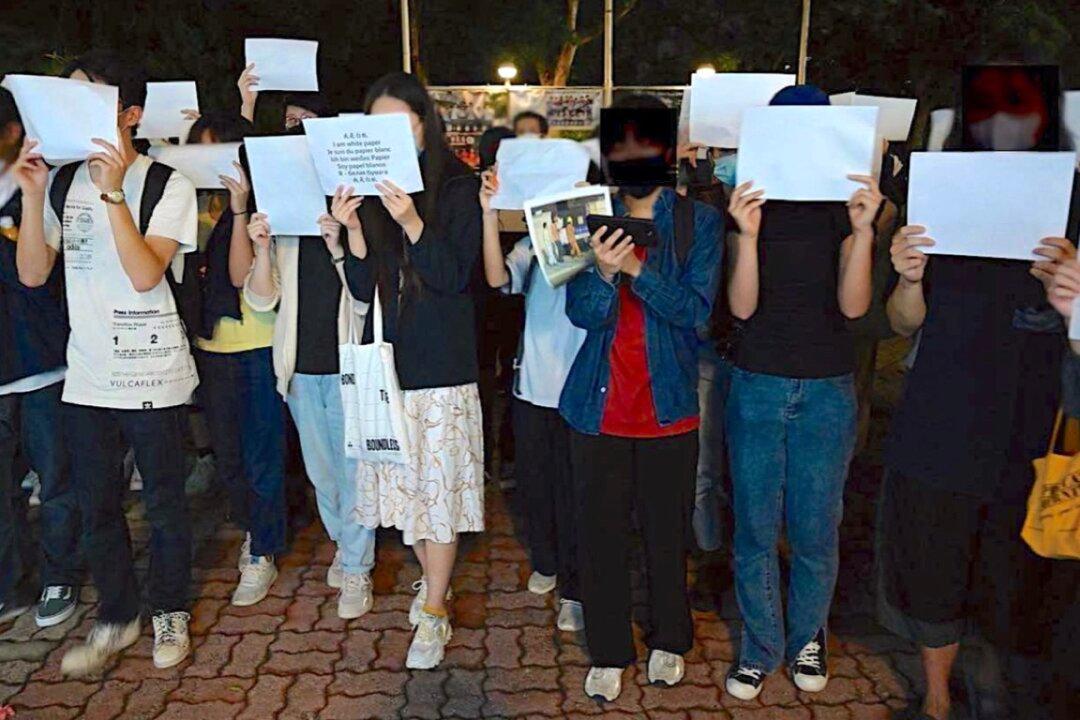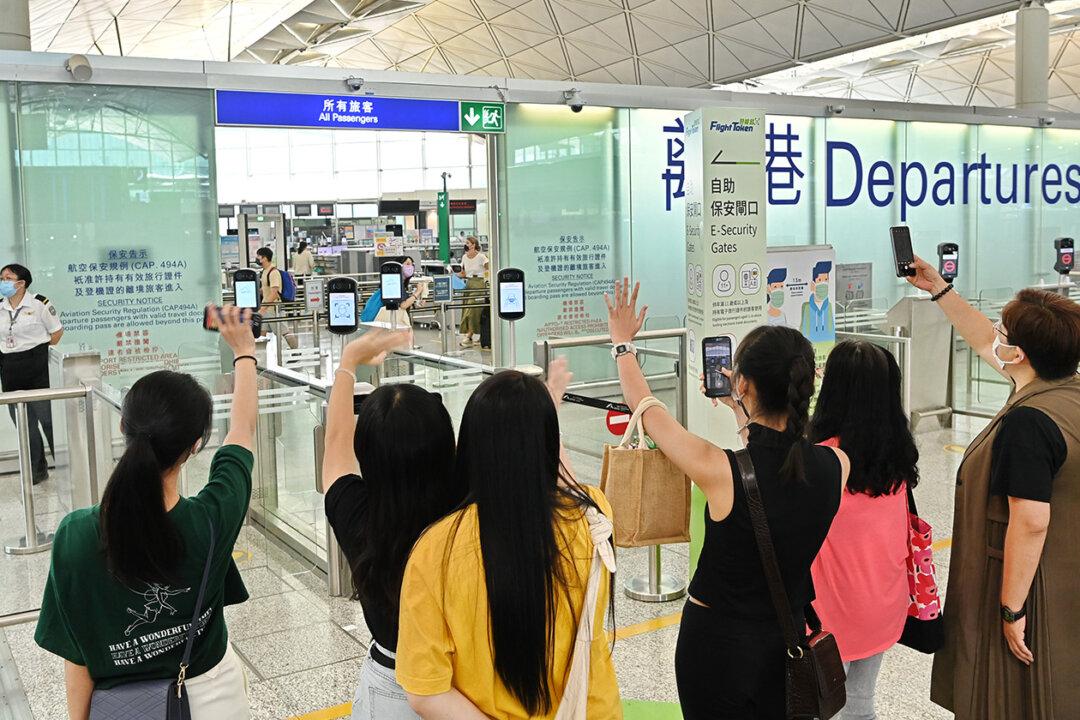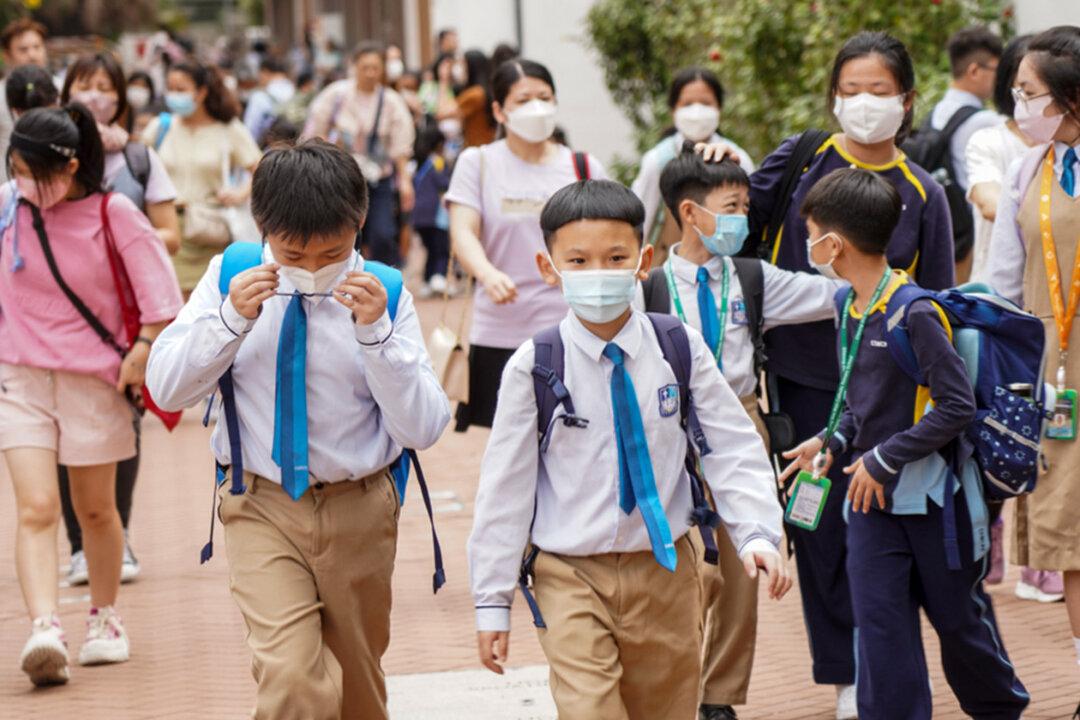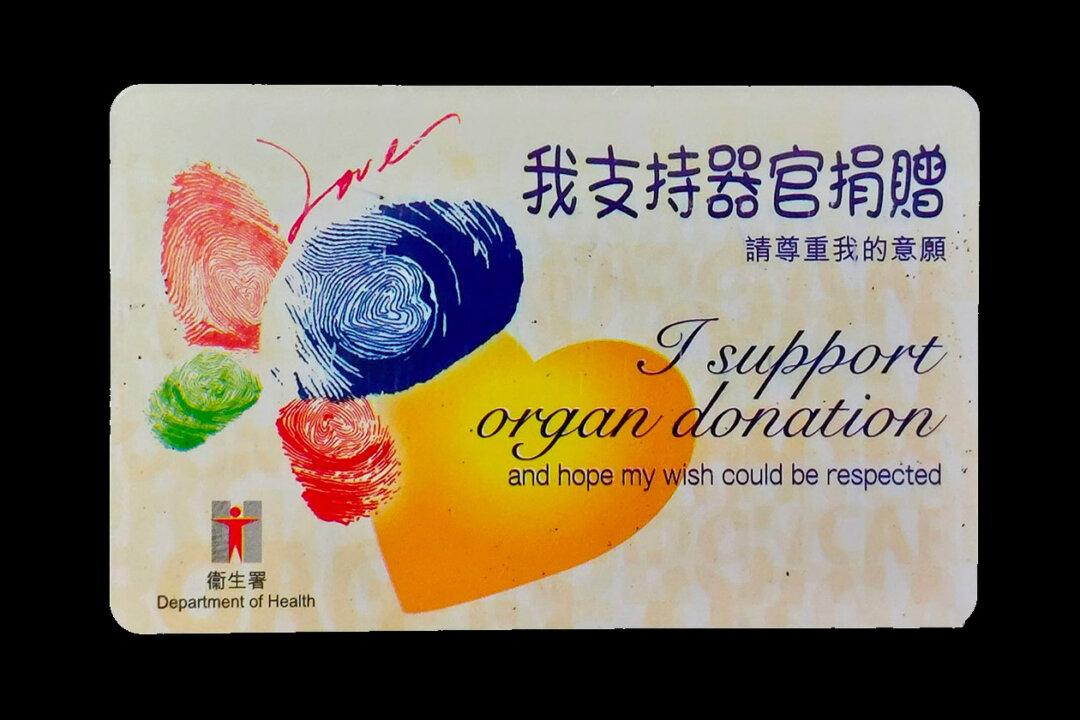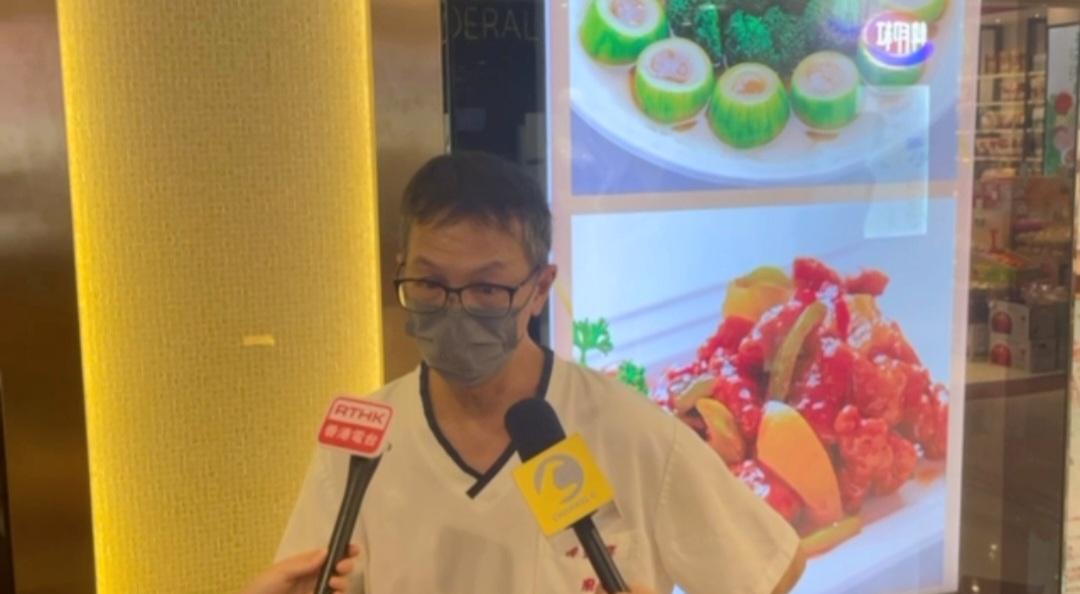On Nov. 27, in response to the “White Paper Revolution” in mainland China, mainlanders living in Hong Kong, Hong Kong citizens, and college and universities students, including those from the mainland, held up blank sheets of paper on the streets of Hong Kong, and in colleges and universities to support the Chinese people in protesting the Chinese Communist Party’s (CCP) harsh COVID rules.
On Nov. 24, a fire in Urumqi, Xinjiang, killed 10 people in a building that had been under lockdown for weeks. The strict Covid rules made it difficult for the firefighters to get to the building leading to the deaths. In response to the tragedy, protests were held in many cities in China including Beijing and Shanghai, expressing mounting public dissent aimed at Beijing’s zero-COVID strategy. In Shanghai, large crowds shouted slogans such as “Down with CCP. Down with Xi Jinping” during the protest. As of Nov. 28, 18 provinces and cities and 79 institutions of higher education across the country have participated in the protest.
